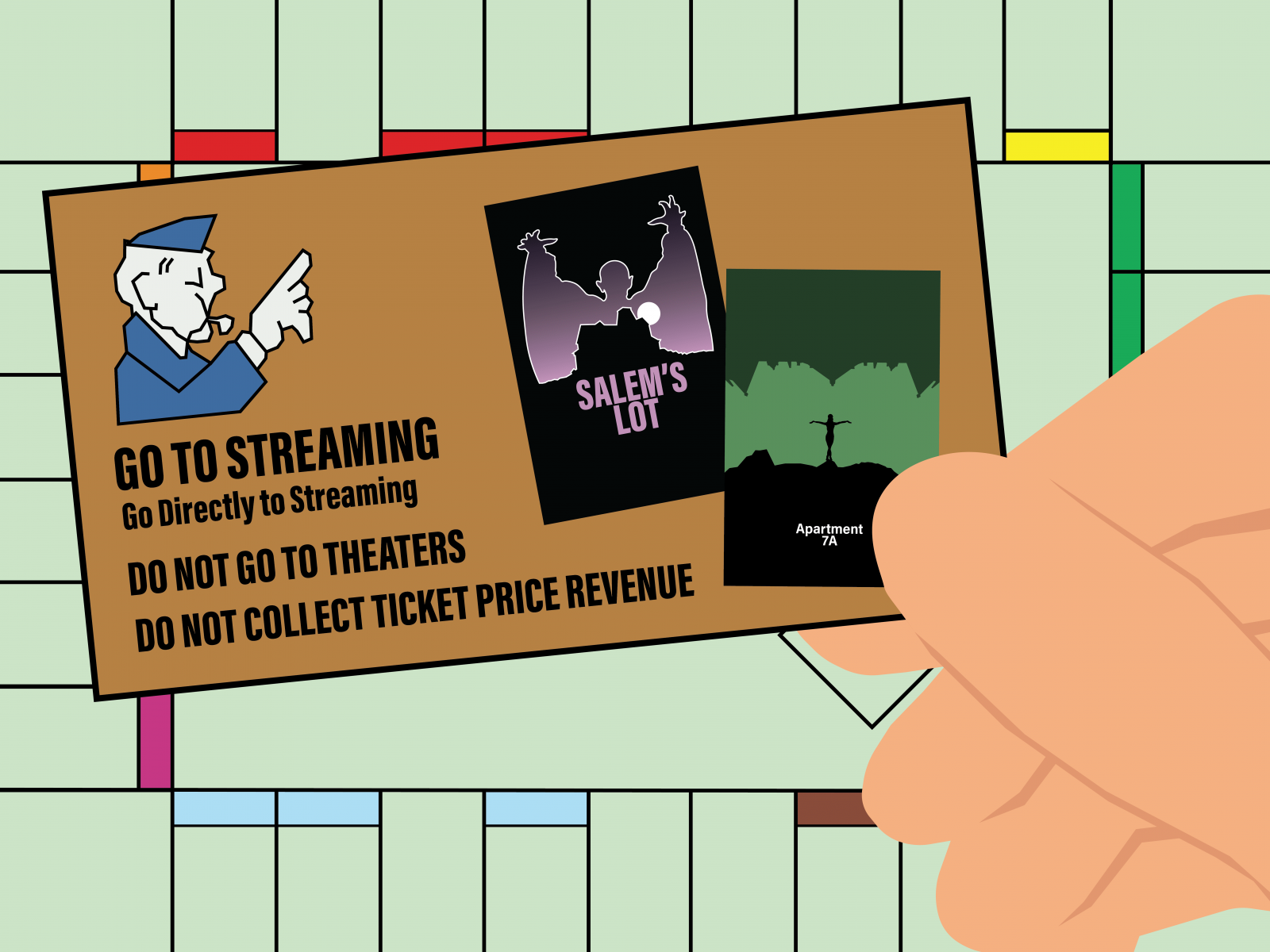Film restoration may be the most underappreciated field in the movie world. The films that need reviving are often old films that haven’t been taken care of in the most delicate way, leading to damage on the original celluloid prints that sometimes even burst into flames due to their very flammable material.
A proper restoration can bring new life to culturally and cinematically important stories through cinema. A film that is a visual rebirth in this sense is my favorite Djibril Diop Mambéty project, “Hyenas.”
Mambéty was born near the bustling West African city of Dakar, Senegal, and grew up with a passion for theater rather than film. He only created two full-length feature films in his life. “Touki Bouki” was his first and most popular one, and is available to stream on HBO Max.
But his second and sadly last feature film, “Hyenas” is Mambéty’s masterpiece. He draws upon his knowledge of theater and brilliantly adapts Friedrich Dürrenmatt’s play “The Visit” to create a playful and witty film that showcases an in-depth view of larger pressing issues.

The movie takes place in his hometown — where all his films take inspiration from — and the premise is one of my favorites of all time. Linguère Ramatou, an extremely wealthy woman, visits her hometown after many decades and offers to relieve the residents of their financial burdens if they agree to murder one of their own, Dramaan Drameh, in revenge for him abandoning her after a pregnancy when they were still teenagers.
While the citizens strongly deny this offering initially, things start to unravel for Dramaan when Linguère teases the temptations of modernization by the promise of refrigerators and air conditioners. At Dramaan’s store, the people start practically stealing from him. Dramaan has no leverage to stop them, as he knows that he needs to appease the wishes of the townspeople so they won’t turn him in for Linguère’s money.
The obvious answer to this growing problem and tension is for Dramaan to leave, and he plans to leave town via train. When the train arrives, however, his neighbors crowd around with torches to send him off. This strikes something in Dramaan, and he puts on a strange act where he runs into their arms while pleading for them to let him go.
This internal conflict in our protagonist is so apparent throughout. Dramaan knows that if he stays with how things are progressing that he will eventually be executed. But he cannot leave his roots, even if it means death, and so Dramaan essentially sacrifices himself for his friends to be in a better place financially.
This looming promise of monetary gain is something that Mambéty made sure to emphasize, as he wants to make that direct correlation to the reality of his hometown. In an interview, he said “If we are able to demystify wealth, the future of Africa is brilliant….We only need be wary of the pathetic contagion of Western ‘Enlightenment,’ which is really not illumination at all, but simply electricity.”
When talking about what this film is a critique on, he responded with, “Money, the International Monetary Fund and the World Bank. I think my target is clear.” It certainly is.
However, the film can also be seen through the lens of feminism. Though Linguère is technically the antagonist to our protagonist, and her role represents the false intrigue of Westernization, it’s hard not to root for her character.
This whole situation arose due to a society believing Dramaan’s story over Linguère’s, despite her being the truthful one. She comes back for justified revenge, dropping incredible quotes such as “The world made a whore of me, I want to turn the world into a whorehouse. You can’t walk in the jungle with a ticket for the zoo. If you want to share the lion’s feast, then you must be a lion yourself.”
This memorable quote is a metaphor for the teachings of capitalism in that each person in the town has to become a “lion” if they want to reap the financial benefits. But it’s hard not to feel for her, and that her path of destruction is perhaps justified on a personal level.
One of the last shots in the film is Linguère rising from her underground home when she senses that Dramaan’s body has been decomposed, looking unfulfilled. This last image of our antagonist is followed by a montage of a bulldozer destroying the landscape. This is another beautiful metaphor, showcasing that the process of putting money over life is ultimately unsatisfying and inevitably destructive to all that partake.“Hyenas” is one of the most visually stunning films of all time, with a perfect soundtrack by Mambéty’s brother, Wasis Diop, while using comedy to push across a pressing and personal story about an ongoing cultural tragedy. It’s available to watch for free on Kanopy using your BU Kerberos account.






















































































































